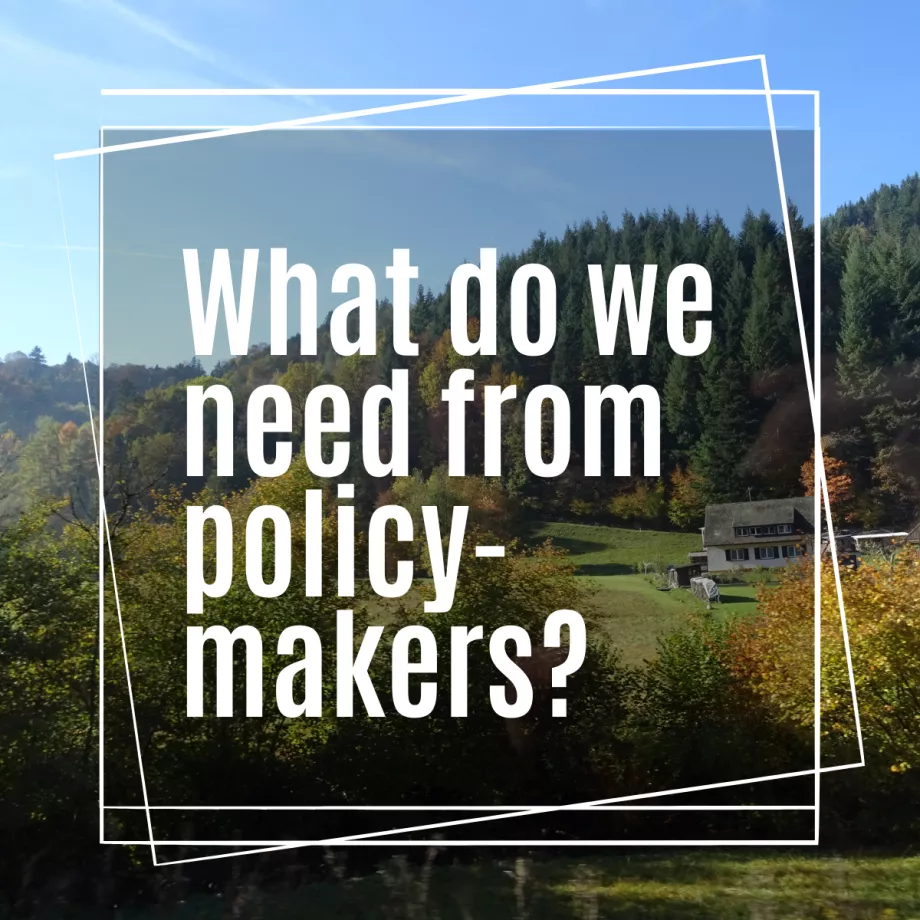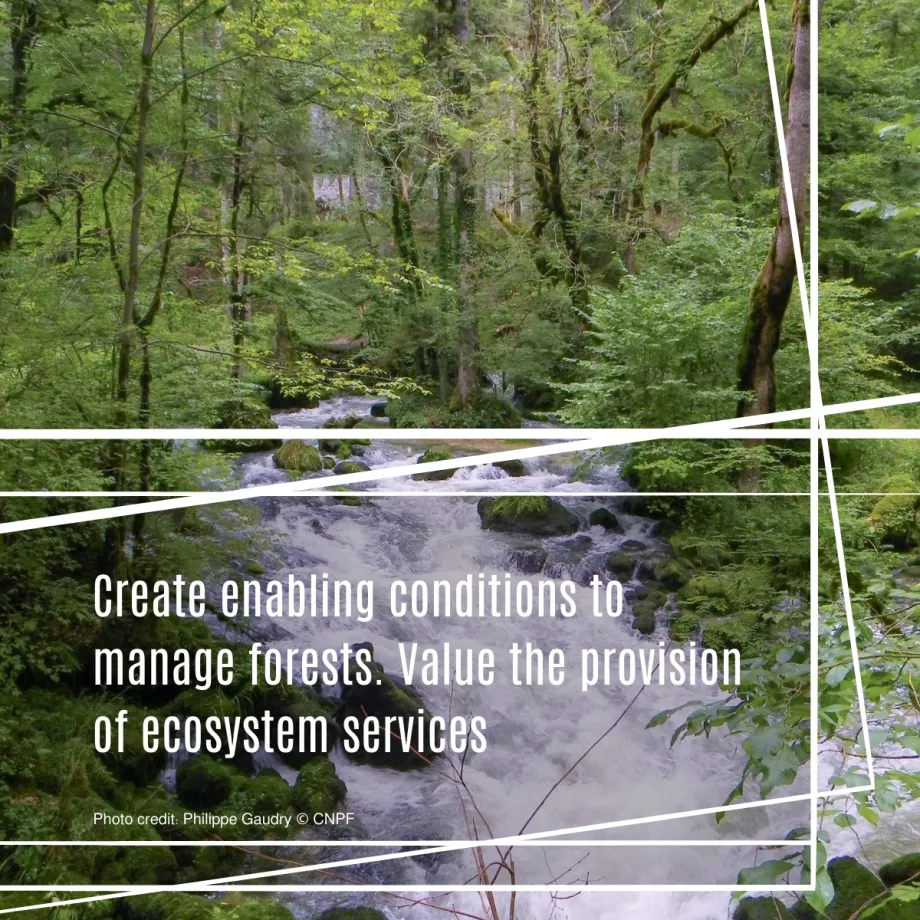Our requests
Without proper management, the necessary changes and adaptations needed by our forests are simply impossible. Active and sustainable management is essential in safeguarding the future of Europe’s forests.
In 2024, new Members of the European Parliament will be elected and a new European Commission appointed. Together with the Members States, they will all drive a new political agenda, with climate action continuing to be a priority. In this context, European forests and forest management must play a key role in shaping the future of the EU. We ask EU policy-makers to:
1. Enhance collaboration with forests owners
- Consider and trust forest owners as key actors in the preparation and implementation of policies that affect us (i.e. environment, climate, energy, agriculture, health, finance, trade, etc.)
- We should be provided with a wider and more direct involvement in discussing policies that directly affect us, reflecting prior and informed consent. Nothing about us without us!
- We must make the EU forest-related policy and legislative ecosystem less complex if it is to be effective and if we want to keep the motivation of forest owners on the ground. We therefore call for an assessment and streamlining of EU forest-related policies and legislations in terms of their long-term impacts, their contribution to an actual balance among different forest functions and their potential leakage effects.
2. Support us in our work
- Adapt support to forest owners to different forest ownership structures, to different regions, to the many services provided to society, and to the specific long time between the beginning and end of the forest management cycle;
- Create enabling conditions to manage forests, in particular measures to adapt forests to climate change (exchange of best practices, scientific support), thus safeguarding forest habitats for the maintenance and enhancement of forest biodiversity and delivering on all other expectations and needs from society.
- Provide operational assistance to forest owners through financial support and investments. In particular to small-scale and new-generation owners who are the future of forest management and need to be encouraged to start and keep managing their forests.
- Develop tools, public and private, to financially value the provision of ecosystem services such as carbon sequestration, biodiversity enhancement or water purification;
- Enhance research and innovation on how to best carry out active and sustainable forest management, including sylviculture adaptation to climate change as well as their accessibility for practitioners.
3. Acknowledge a ‘one size fits all’ approach cannot work
- Ensure sufficient room for tailored practices and solutions that best fit the diversity of forests, their local context and their challenges across Europe. There cannot be a ‘one size fits all’ approach;
- Define and implement EU policies taking into account the distribution of competence between the EU and Member States and existing national forest policies, in full alignment with the subsidiarity principle according to the EU treaty.









